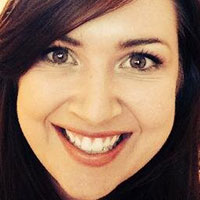News and Updates
Contact
Faculty of Social Science
Social Science Centre
Room 9438
Western University
T. 519-661-2053
F. 519-661-3868
E. social-science@uwo.ca
Learning about leaders with the Mayors Project
April 20, 2017 Even before her PhD research, Kate Graham had insight into the role of Canada mayors.
Even before her PhD research, Kate Graham had insight into the role of Canada mayors.Graham, a PhD student in the Department of Political Science, has been employed by the City of London for the past 10 years. In that time, she worked with four mayors, and met many others.
Through her job, Graham saw many examples of mayors having influence, but also spoke to many mayors who felt their role is misunderstood.
These experiences inspired Graham, and as she worked on her PhD, focused on local government, she found the role of mayor was also understudied. Very little has been written about the role of the mayor in Canada, with the most focused piece being a chapter on the role of mayors in a book on political leadership in Canada, written by Western professor Andrew Sancton 20 years ago.” Graham decided to study the role of mayors, to better understand the role in Canada’s unique context, and kept a record of her work on a website called The Mayors Project.
“The classic perspective in Canada is that Mayor’s hold little power – or that we have ‘weak mayors’,” said Graham, but there are many examples where mayors exercise great power and influence in their communities, in unique and varying ways.
Mayors, and municipal government in general, are also playing an increasingly significant role in a number of policy areas traditionally considered the sole purview of federal or provincial governments. Graham points to immigration as an example; while the federal government controls immigration, most of the settlement services required by immigrants are provided at the local level.
Graham argues Canadian Mayors have three distinct leadership roles: as political leaders in working with city council, sometimes a local political party, and other elected officials; as executive leaders, having some formal role in the administration of a municipality; and as community leaders.
“Each of these roles require different skills and it’s tough to excel at all three,” Graham said. “Mayors tend to gravitate toward one role or another, and this changes not only how they lead as mayor but also shapes the engagement of other actors involved in local governance.”
To get a better understanding, Graham took a 2 month journey across Canada, stopping in the largest city of each of the 10 provinces. She interviewed, mayors past and present, city councilors, and other influencers in the cities to better understand the role of the mayor in that city. She kept an ongoing blog of her travels, and used social media to power local engagement.
“Having the website was an amazing opportunity to connect to people in each city,” Graham said. “Often people would write and offer different opinions. I learned a lot about each city through social media interactions and the blog which I would have not have learned otherwise.”
Graham believes that examining the role of the mayor offers a window into understanding political culture at the local level. “During mayoral elections, it’s often an opportunity for a city to express itself and its aspirations for its future,” said Graham, as the issues discussed in the election often extend beyond the responsibilities of the mayor.
While some see the Mayor’s office as a step to higher office, Graham said there are also many examples where people to move from other levels of government to become a mayor. Graham interviewed a number of mayors and former mayors who had also served as MPs, MPPs and MLAs, and may expressed that serving as mayor offered the greatest opportunity to influence change in their community.
As she works to finish her thesis, Graham will continue to update her website and make her findings available to the public.

